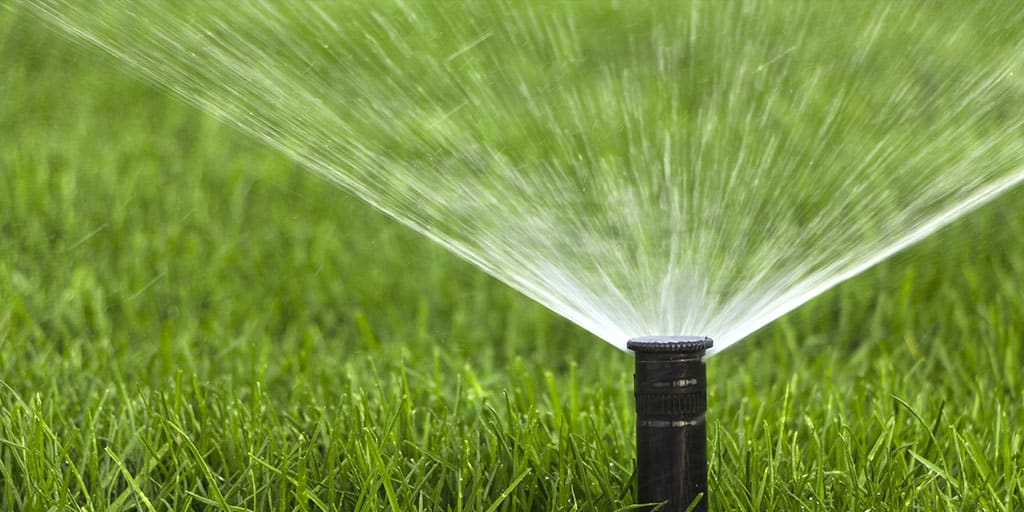To keep a lawn sprinkler system from freezing, drain the water supply and blow compressed air through the pipes before temperatures drop below freezing. Winterizing your lawn sprinkler system is crucial in preventing damage and costly repairs caused by freezing temperatures.
By following these steps, you can protect your system and ensure it functions properly when spring arrives.

Credit: landscapingthegulfcoast.com
How to Keep Lawn Sprinkler System from Freezing: Step by Step Guide
Understanding The Risks Of Freezing
Understanding the risks of freezing is crucial in preventing lawn sprinkler system issues. Freezing temperatures can have a significant impact on these systems. Common issues caused by frozen sprinkler systems include cracked pipes, damaged valves, and broken sprinkler heads. To keep your lawn sprinkler system from freezing, there are a few steps you can take.
First, ensure that the system is properly drained before the onset of freezing temperatures. This will prevent any remaining water from freezing and causing damage. Additionally, insulating the pipes and valves can provide an extra layer of protection against freezing.
Using a specialized insulation material or wrapping the pipes with heat tape can help prevent freezing. Furthermore, installing a freeze sensor can detect low temperatures and automatically shut off the system when freezing conditions are present. By understanding the risks and taking preventative measures, you can keep your lawn sprinkler system safe from freezing and avoid costly repairs.
Preparing Your Sprinkler System For Winter
Preparing your sprinkler system for winter is crucial to prevent freezing and potential damage. Shut off the water supply and drain the system to remove any water that could freeze. Insulate vulnerable components, such as pipes and valves, with appropriate materials.
Consider using a backflow preventer and frost-proof valve to further protect your system. These devices can help prevent water from backing up into the main water supply and ensure that the valve remains functional during cold temperatures. By following these steps, you can safeguard your sprinkler system and avoid costly repairs in the future.
Don’t let freezing temperatures ruin your lawn; take the necessary precautions and keep your sprinkler system running smoothly all year round.
Winter Maintenance Strategies For Your Sprinkler System
During the winter season, it is crucial to take certain maintenance steps to prevent your lawn sprinkler system from freezing. One important task is to regularly check for leaks and damaged parts, as these can lead to water leakage and potential system damage.
Additionally, it is necessary to clear debris and leaves from the system to ensure proper functionality. This will prevent blockage and potential freezing issues. Lastly, adjusting the sprinkler controller to suit winter conditions is crucial for optimal performance. By reducing watering frequency and adjusting run times, you can prevent freezing and damage to the system.
These winter maintenance strategies will ensure that your sprinkler system remains in good condition throughout the cold season.
Bonus Tips To Keep Your Sprinkler System Safe From Freezing
To prevent your lawn sprinkler system from freezing, there are a few bonus tips you can follow. One effective method is to insulated sprinkler pipe wraps, which provide an extra layer of protection against the cold. Another helpful tip is to install an automatic freeze protection device, which detects freezing temperatures and takes necessary action to prevent damage.

Additionally, partnering with a professional sprinkler system maintenance service can ensure that your system is properly winterized and maintained. These experts have the know-how to identify potential issues and address them before they cause any significant damage. By implementing these strategies, you can safeguard your sprinkler system and avoid the hassle and expense of dealing with freezing-related problems.
Frequently Asked Questions Of How To Keep Lawn Sprinkler System From Freezing
How Can I Prevent My Lawn Sprinkler System From Freezing?
To prevent your lawn sprinkler system from freezing, you can take several measures. First, drain and winterize the system before the freezing temperatures arrive. Second, insulate any above-ground pipes or equipment. Third, install a freeze sensor that shuts off the system when temperatures drop.
Lastly, consider using a professional to install a specialized anti-freeze solution in your irrigation lines.
What Happens If My Lawn Sprinkler System Freezes?
If your lawn sprinkler system freezes, it can cause significant damage. The water inside the pipes expands as it freezes, leading to cracks or ruptures. This can result in costly repairs and water leakage once the system thaws. Additionally, freezing temperatures may damage sprinkler heads, valves, and other components, ultimately leading to decreased performance or even system failure.
When Should I Winterize My Lawn Sprinkler System?

It is advisable to winterize your lawn sprinkler system before the first freeze, usually in late fall. The exact timing may depend on your region’s climate and the typical date of the first freeze. It’s crucial to schedule this maintenance task in advance to ensure your system is protected and you avoid any potential damage from freezing temperatures.
Conclusion
To ensure your lawn sprinkler system remains protected from freezing temperatures, it is crucial to implement preventative measures. Start by ensuring the system is properly insulated and the pipes are well-maintained. Regularly draining the system before winter sets in will also help prevent any residual water from freezing and causing damage.
Additionally, consider using a sprinkler system cover or an insulated box to offer extra protection. Taking the time to locate and repair any leaks or cracks will further safeguard your system from freezing. Finally, staying vigilant by keeping an eye on weather forecasts and regularly checking your system during cold spells will allow for early detection of any potential issues.
By following these steps, you can ensure that your lawn sprinkler system remains in optimal condition throughout the winter season.

